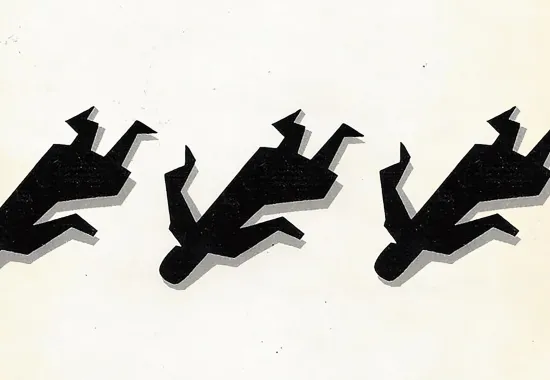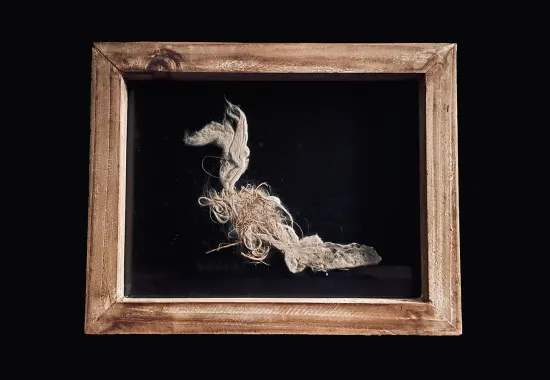Musically Styling Vonnegut
Susan Swaney discusses the Voces Novae chamber choir's take on Vonnegut's revision of the traditional Requiem, which you can read here.
This is the 50th anniversary of the publication of Kurt Vonnegut’s Slaughterhouse Five. One wonders what Vonnegut would have to say about our screen-drugged lives, about the North Korean nuclear false alarm in Hawaii, about the passionate partisanship that fuels our country right now.
Voces Novae chamber choir, in Bloomington, Indiana, is thinking about all of this as we prepare to sing newly-commissioned musical settings from Vonnegut’s revision of the traditional Requiem text, which we will premiere on May 11 and 12, 2019, in Bloomington.
Once, when I gave composer/astronomer Gabriel Lubell a ride home from Voces Novae rehearsal, somehow we got onto the topic of the expanding universe, and Gabe said, “The world is going to be a dark, cold, lonely place.” Vonnegut characteristically turns that thought on its head and welcomes the darkness, eschewing the welcome of a Father-in-Heaven in favor of the indifference of the Cosmos. Instead of “Let light eternal shine upon them,” Vonnegut implores, “Let not light disturb their harmless sleep.”
I learned of the text from author Dan Wakefield, who was editing Vonnegut’s letters at the time. Dan told me about the musical setting by Edgar Grana, and I immediately ordered the CD, hoping to perform it. Grana’s piece turned out to be too large-scale for the musical forces at my disposal, but I could not forget the text. I wanted to use it, but in Vonnegut’s tangy English (sorry, Mr. Vonnegut, but I think the idea to translate it back to Latin was a dud).
So we set out to create our own musical setting. We chose eight composers whose music we loved and whose wit seemed congenial to the task. Four composers closely connected to the choir (including Gabe Lubell) were men, so we made sure to round out the group with four women.
“When the litigious have been confounded, and sentenced to comical disappointment, count me among the gratified.”
I wanted the pieces to be accessible to both performers and audience, and so we limited the individual pieces to 5 minutes (which means not every word of the Requiem is included in the set, though we will print the whole text in the program, alongside the translation from which Vonnegut worked). We limited the accompaniment to just 6 instruments, using those chosen by Stravinsky for his chamber piece A Soldier’s Tale, for which Vonnegut also wrote an alternate narration. We thought it would make a nice concert pairing (Though not this time–we have enough on our plate with 9 world premieres to perform!).
Why are there nine pieces and only eight composers? One of the more interesting tasks in setting up the commissions was to divide the text among the composers. I sent the text to all the composers and asked them to choose their first, second, and third favorite sections. Everyone got either their first or second choice. But nobody–nobody!–chose the text I thought was most typical of Vonnegut: “When the litigious have been confounded, and sentenced to comical disappointment, count me among the gratified.” When Malcolm Dalglish finished his lovely piece, “Grant Them Rest,” he turned his considerable creative energy to the Litigious text and came up with a magnificent, hilarious cartoon march, nonsense syllables morphing into “Objection!”
Every composer brought something special to the text. Cary Boyce originally described his opening movement to me as, “Stravinsky and Vonnegut and Pope Marcellus II walk into a New York Beatnik Bar in the Village.” Stacy Garrop, assigned the Day of Wrath text, started every composition session by reading Slaughterhouse Five, and the result is both hard-hitting and witty. Dale Trumbore used soothing woodwinds in her sweet, sliding lullaby, and Gabe Lubell embraced the indifference of the cosmos with another calm movement integrating chant and a bucolic setting of Vonnegut’s ironic “Give me a place among the sheep and the goats, separating none from none.” Lauren Bernofsky, a violinist herself, wrote a devilish fiddle lick to signify the hell from which all souls should be exempt. The hellfire gives way to a lyric ending: “Life was sport enough!” Don Freund, for his Sanctus, created a dense and colorful palette of sound, including “weird, growly” unpitched chants of “Holy, holy, holy” and soaring hosannas. And Moira Smiley creates a sinister evocation of the “Perpetual Light” of glowing screens and nuclear annihilation and then cools it down to a lovely final resting place.
Seeing Vonnegut’s text side-by-side with the original translation is such an interesting way into his irreverently reverent soul. We look forward to bringing his words to a generation of choral lovers!
The Voces Novae chamber choir is a part of the Indiana University Granfalloon.
Recommended
A Behind the Scenes Look at Art Selection and Cover Design for the NAR
“Doubling and the Intelligent Mistake in Georges Simenon’s Maigret’s Madwoman”
What the Birds Showed My Wounded Child, My Adaptive Adolescent, & My Wise Adult






